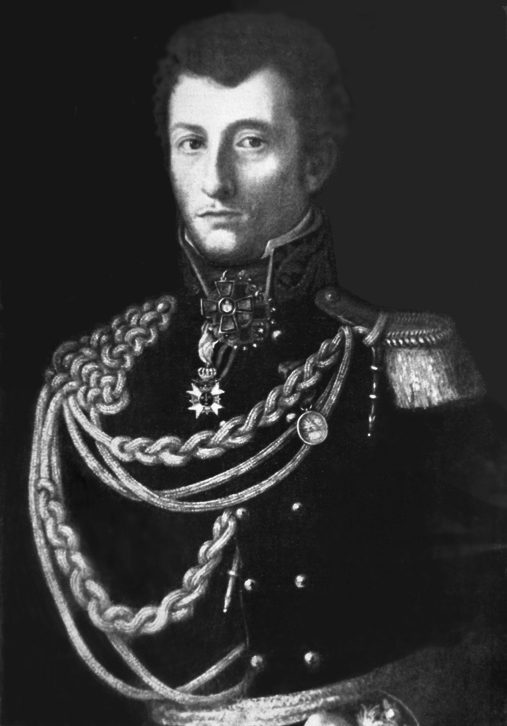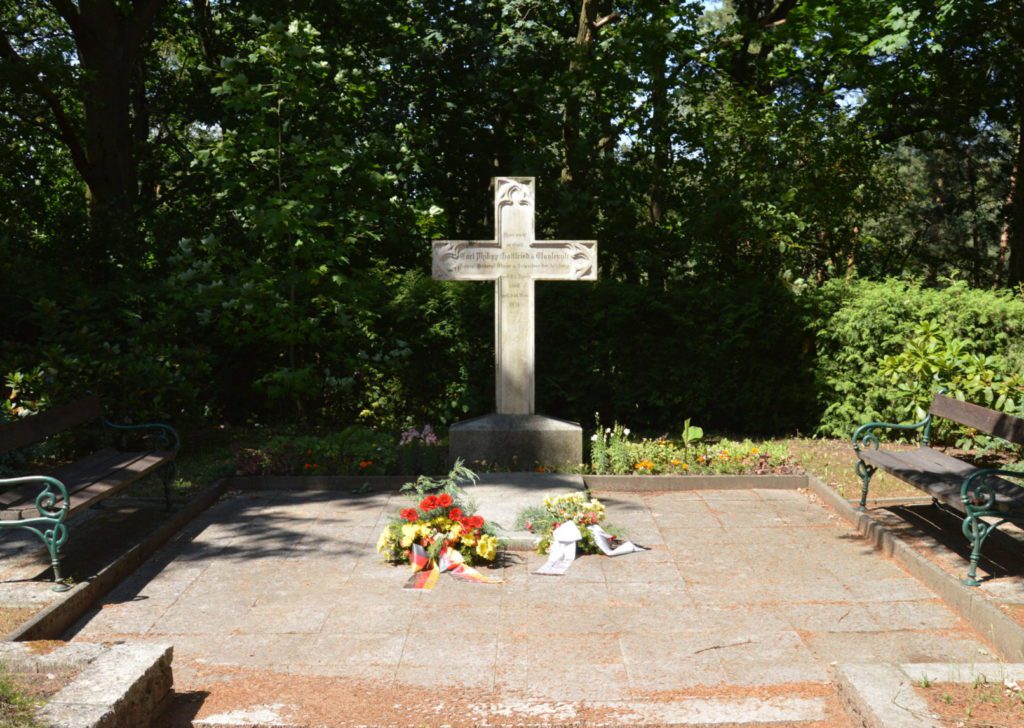Nicolas Roberto Robles
Badajoz, Spain
 |
| Carl von Clausewitz. Via Wikimedia. |
“Sollte mich ein früher Tod in dieser Arbeit unterbrechen”
(“If an early death should terminate my work”)
— Carl von Clausewitz, Vom Kriege
Carl Philipp Gottfried von Clausewitz (1780–1831) was a Prussian general and military theorist who stressed the psychological and political aspects of waging war. He is remembered chiefly for his work on the strategy, tactics, and philosophy of war, titled Vom Kriege (On War), which greatly influenced the development of warfare in the West and is still taught at military academies today. His theories are also applied in the fields of business management and marketing.1,2
Clausewitz was born in the Prussian Duchy of Magdeburg, son of the tax collector Friedrich Gabriel Clausewitz and his wife Friederike Dorothea Charlotte, née Schmidt. According to his own account, his family came from an Upper Silesian noble family. He became a major general in the Prussian army and married at court a lady from a noble family.
In October 1801 he began to attend the Berlin War School, and was influenced there by its founder, Gerhard von Scharnhorst. He quickly grasped the connections between politics and warfare, and he also studied the works of Immanuel Kant. In 1804 he graduated at the top of his class and became aide-de-camp to Prince August of Prussia. This gave him access to the court and higher society, where he also met his future wife.
In 1806, Clausewitz fought as a captain in the war against Napoleon, and after the Prussian defeat at Jena his battalion surrendered to Marshal Murat. He was brought to Berlin and presented to Napoleon, who in a condescending conversation claimed that he had always desired peace and did not understand why Prussia should have declared war on him. He spent a year in French captivity in 1807. Here he analyzed the defeat of the Prussian army in his “Historical Letters on the Great Events of the War in October 1806.” After his return, Scharnhorst called him to his personal staff in 1809. From then on, he worked on the reorganization of the army as one of the most important reformers. In 1810 he was promoted to major and served as Scharnhorst’s chief of office and as a teacher of general staff and tactics. He also taught the Prussian princes (including the Crown Prince and later German Emperor Wilhelm I) as a tutor.
 |
| Tomb of Carl von Clausewitz in Burg. Crop of photo by Olaf Meister on Wikimedia. CC BY-SA 4.0. |
Since it was morally impossible for Clausewitz to support Napoleon in his war against Russia in 1812 (Prussia was forced to fight against Russia), he left the army and entered Russian service. He took part in all the important battles and played an important mediating role in the Convention of Tauroggen. As the Prussian King Frederick William III refused to take the “deserter” back into Prussian service, Clausewitz took part in the wars of liberation as chief of staff of a Russian corps until he was allowed to return to Prussia as a colonel in April 1814. He was awarded the Gold Sword for Bravery in 1819 for his service at the Battle of Borodino in 1812.
In 1815 he once again took part in the campaign against Napoleon, which culminated in the Battle of Waterloo. For the next three years, Clausewitz served as chief of staff in the army in Coblentz. Since all liberal reformers were unwelcome during the Restoration, they were transferred to less influential posts. Clausewitz was appointed director of the General War School in Berlin in 1818, but was not given permission to teach there as well. In September, he was promoted to major general. At 38, he was the youngest general in the Prussian army. This post did not satisfy him, but all requests for transfer were rejected, although he was at least admitted to the general staff from 1821. In 1827 Clausewitz and his brothers were officially ennobled by the Prussian king.
It was not until 1830 that he was transferred, first to the 1st Artillery Inspectorate in Breslau. But already a Polish insurrection broke out, and Clausewitz was appointed Chief of Staff of the Prussian Observation Corps under Gneisenau. Russian troops brought cholera to Poland, which soon spread throughout Europe. Gneisenau also died of it, and Clausewitz took command of the Prussian troops. But he returned to Breslau in the fall of 1831, and died a few days later on November 16, 1831, at the age of 51.
It has not been conclusively determined that the cause of death was actually cholera. One of his biographers believed that he died from heart failure.3 He had suffered from a variety of illnesses, gout attacks since 1818, and temporary paralysis of his right arm as the result of a stroke in 1822, as well as being affected by melancholy throughout his career.4 There is no detailed account of Clausewitz’s last hours. His first biographer, Schwartz, commented that: “he had been attending to his professional business with his usual zeal until noon, when the same disease that had claimed Gneisenau’s life seized him and ended his life after only nine hours. According to the testimony of the physicians, his death was more the result of the state of his nerves, which had been shaken by deep spiritual pain, than of the disease, of which he had had a relatively mild attack.”3
He was buried in Breslau (now Wroclaw, Poland). His remains, along with those of his wife, were moved to the eastern cemetery of his native Burg in Germany in 1971.
References
- “Carl von Clausewitz.” Wikipedia.
- “Carl von Clausewitz.” ProleWiki.
- Wilhelm von Schramm. Clausewitz: General und Philosoph. Esslingen: Bechtle, 1977.
- Roger Parkinson. Clausewitz: A Biography. London: Wayland Publishers, 1970.
NICOLAS ROBERTO ROBLES is professor of nephrology at the University of Extremadura (Badajoz) and member of the Academy of Medicine of Extremadura.
Winter 2023 | Sections | History Essays

Leave a Reply